#Mongolian literature
Text
Intro: Favorite Mongolian Authors & more
#slavic roots western mind
I've always had an interest in Mongolia, primarily because there's literally so little international news coverage, at least in my neck of the woods so to speak.
Despite my Mongolian language learning attempts being paused for the time being, I nonetheless continue to fall in love with Mongolian literature with every read, especially with poetry, which is why I've wanted to share my favourite authors.
Here's my quick list of Mongolian authors who's works I've read so far (and a few that are on my to-read radar).
1. Galsan Tschinag
My absolutely favorite poet, born in Mongolia in 1944, famous for his poetry, which interestingly enough was originally written in German, and then translated to English.
His works primarily feature the themes of a nomadic lifestyle, nature, heritage and cultural identity, so if any of these topics interest you, definitely check out his works!
2. Chadraabalyn Lodoidamba
I've only managed to read one of his novels "Тунгалаг тамир" (The Crystal Clear Tamir River), but it's definitely a worthwhile read. Set in the 20th Century, it provides an interesting insight into Mongolian history leading up to the uprising of Mongolia in 1932, with a strong focus on the struggle of the poor against the rich
There's no official English translation (there are German and Russion versions somewhere, but I didn't find them yet), but google translate helped me create a readable version from the original Mongolian.
There's also a movie split into several episodes avaliable on yt but with iffy subtitles, so if you liked the book, you can sort of follow along with the movie.
It's rare for me to hear spoken Mongolian, so watching the movie episodes has been a fascinating experience.
3. Choinom Ryenchi
Once again, I've only read one of this authors works "Buriad", written in 1973 and published in Sümtei Budaryn Chuluu [A Stone from the Steppe with a Monastery] in 1990, but it was enough to interest me.
Buriad refers to an ethnic group in Mongolia, with the poem describing their lifestyle and history. I don't know if what I've read is the entire work, as I found it in a research paper, feauturing said poem with the translation, but it was still quite beautiful.
The style is very lyrical, almost like a song or even a chant at times, and very captivating. A must-read.
4. Mend-Ooyo Gombojav
He has written quite a lot of novels, with many of them luckily translated into English.
His "The Holy One" is a great work of historical fiction, about a 19th century poet and teacher of Buddhism, whose memory and works were later persecuted by the governments fight against intellectuals and free-thinkers, all whilst his works protector attempted to save his works.
Unfortunately I've only read excerpts and bits and pieces, which is pretty frustrating because it seems so good? The style is unusual for me, but it's pretty great either way.
I've read the peom "The Way of the World", which has a rather nostalgic vibe, remembering the past warriors and their heroic deeds but also suggesting that only the stories of their victories will remain. Short but "sweet".
5. Oyungerel Tsedevdamba
I only know her "The Green-eyed Lama", co-written by her and her husband Jeffrey Lester Falt, but the plot description is enough to have me hooked. A love triangle, love and faith amidst war and rebellion... Here's me hoping that it won't be a tear-jerker, because sad endings are not my favorite genre.
Here's a link to a video about Oyungerel's and Jeffrey's writing and research process and how they wrote the novel. It's actually based on a true real-life story, so I guess I'll see how reading this novels turn out. History isn't exactly known for it's happy endings, so we shall see.
6. Combo: Mongolian Short Stories
This one is a compilation of short stories by various Mongolian authors rather than just one author, but it'll have to do because Number 6 exhausts all my knowledge of Mongolian literature.
Edited and compiled by Henry G. Schwarz, each story is about 4-15 pages long with different themes, ranging from daily life in rural Mongolia to critiques of the political situation at the time, the style is a tad over the place, as each author has their own distinct style. Nonetheless, this book gives interesting insights into what life was like in Mongolia at the time, and whether our notions and initial ideas about Mongolia reflect the literary depictions.
Here's my list so far, but chances are I'll update it soon, so watch out for any new updates!
I'll happily share any links and digital copies of these works that I have, just message me please!
#college life#literature#book blr#study blr#light academia#mongolia#slavic roots western mind#Mongolian literature#student life#student
8 notes
·
View notes
Text
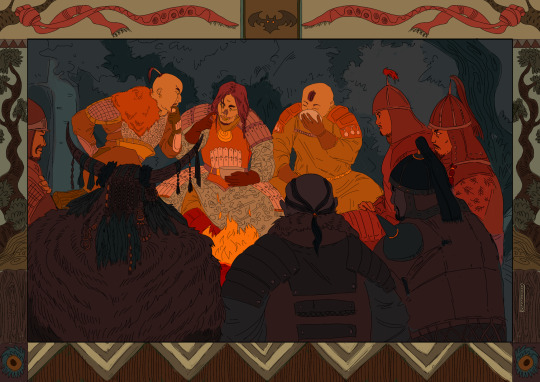
Illustration to story "Mergen" The second part.
Читать рассказ:
https://ficbook.net/readfic/018bd190-a9c5-7cf5-b2c4-c29216e59e26
https://author.today/work/331882
11 notes
·
View notes
Note
8, 9, 12, 19 for the book asks? 😊
8. the best protagonist u have ever seen in a book and why?
And rightaway, I got stuck on this question for a while! XD But for now, I'm gonna go with Flavia de Luce. The thing about her is - she is that 11-year-old little chemistry genius supersmart-kid-detective prototype, but she's also very clearly a preteen girl. She has some silly things she believes in, some petty grudges to hold onto, some deep grievances she'd never share with anyone - she has a heckton of personality. A lot of people who write kid characters fail to give them a whole-ass personality, but Alan Bradley nails it. Flavia is snarky, she's naive in ways that are believable even next to her brightness, and while she's an incredibly quick thinker and stubborn to a fault, it doesn't mean she automatically gets away with everything. Things come back to bite her, and she has to think her way around them or just suck it up and live with consequences.
9. if u were stuck on an island and could only have three books w u what would they be? (series would be counted as one cuz as i said so)
All of Discworld (hey, the question specifies that a series counts as one, and I don't know how long I'll be on that island!) Other than that, my Iliad & Odyssey double volume because I'm a pretentious fuck because my translation is a pretty old and poetic one and I'll need all the time to take it all in. And something a little more obscure, an old fave of mine, James Aldridge's The Marvellous Mongolian. It's an epistolary novel that tells a story spanning several years, and it's nothing that could just be quickly skimmed on the train, so yeah, that's something to keep me busy for a while.
12. a book/book series u wish u could read for the first time ever again?
Gisela & Bettina von Arnim's Das Leben der Hochgräfin Gritta von Rattenzuhausbeiuns. Has something of a fairytale, so reading it for the first time, I dunno, I got kinda caught up in it like a kid :3 The girls going out and having fantastical adventures? Heck yeah, it was like I got, way after adulthood, suddenly a cool new sister to Pippi Langstrumpf!
19. a book u came across randomly but ended up loving it?
I honestly think most first-of-a-series books I own came my way randomly. Gotta start somewhere, I guess? I cannot for the life of me remember how we came to possess Naomi Novik's His Majesty's Dragon (and if it was me or my brother who obsessed about it first), but yeah, I loved it in fact so much that I ended up wanting to write historical fantasy myself.
#ask thingie#thanks!#books#literature#Flavia de Luce#Discworld#Iliad#Odyssey#The Marvellous Mongolian#Bettina von Arnim#His Majesty's Dragon#wow that's a little boost for my confidence. apparently I HAVE read at least some of the books I own :'D
1 note
·
View note
Text
Or perhaps it was simply that things were happening inside her, terrible things, which no one else could even guess at, and thus it was impossible for her to engage with everyday life at the same time.
The Vegetarian, by Han Kang
#page 91#mongolian mark#the vegetarian#han kang#deborah smith#korean fiction#korean#ch'aesikjuuija#yeong-hye#internal struggle#mental illness#quote#quotes#literature#book#booklr#reading
0 notes
Text
feeling enthusiastic tonight so i wanted to talk about my favourite things about the languages i speak/am studying!
mandarin chinese:
singular character words are fairly rare! unlike english, due to the high number of homophones in the spoken language, most words are comprised of two or more characters for clarity's sake. for example, while 孩 does by itself mean child, usually it's combined with another character (ie 孩子,小孩儿,etc.) due to it sounding similar to other words (还,骸).
in spoken language, you often need the entire context to understand the meaning. due to homophones, if you're missing the surrounding context, then it can be easy to misunderstand what someone's saying.
homophones generally! i've been known to love a good tongue-twister, and being a native chinese speaker is definitely part of that—there's just so many good ones! this also crops up in social media/memes, where a homophone is substituted for the original character(s).
the written language! i'm definitely more biased towards simplified chinese, but i can still read traditional chinese, and i think chinese is one of the most beautifully-written languages. it's just so logical! the strokes follow a certain order, and everything is contained in "boxed" that are very pleasing.
german:
poetry! german is known for literature, and i love reading poetry in german, even if not having studied it in a while means i have to look things up pretty frequenty ^^°°
the pronunciation! while i'm definitely at an advantage since i have an ear for languages and can nail german pronunciation at a natural level, i love speaking german—especially the longer words! i love the way the letters sound together (i'm definitely biased towards the eu/äu combination haha).
the ß!
gothic script—this appears a lot in historical german print, and i love it, even if it does make it a bit of a challenge to read anything haha.
kurmanji:
the various possessiveness contructions—there is no verb corresponding to the english to have, so instead you have to use the verb hebûn, to exist, so for example, two brothers of me exist (du birayên min hene, using the izafe construction) or for me two brothers exist (min du bira hene, without izafe, possessor is in the oblique case at the start of the clause) would be used instead of "i have two brothers".
the xw dipthong—i'm probably biased because i love "uncommon" sounds and letter combinations, but not only does the x in kurmanji sound nice (it's sort of like the ch in bach, or the ch in loch), when combined with the w it makes a sort of hissing sound which i'm very partially to.
mongolian:
sounds absolutely gorgeous!! central asian languages generally sound very pleasing to me, but i especially love the guttural sounds in mongolian.
the traditional script is one of the most beautiful things i've ever seen. i have yet to learn how to write in it (at least without a lot of tears on my part), but there's a user on xhs that writes in traditional script, and it's just. stunning. it's fluid, and curling, and just! aaaa!!! i love it. also it's written vertically, which is a fairly uncommon thing as far as languages go.
it's got a ton of different dialects! i'm a known enjoyer of dialects and regional language variations, so of course this is like a goldmine to me.
korean:
i know i said that the mongolian script is gorgeous, but look, i love writing systems in general, and korean is just. so orderly! so perfect for my pattern-obsessed little mind! also, it only takes, like, half an hour to memorise. 12/10 i love it.
a very specific point, but the various ways to say goodbye! you specify whether the person you're speaking to are staying or leaving.
turkish:
probably the most agglutinative language i'm aware of—a lot of words, especially more "modern" (ie new) words are formed by taking a base word and then adding on "meaning" or semantics to it, for example the word for a shoe cabinet is literally "that which stores the covers for the feet".
neutral pronouns! spoken mandarin is also neutral in pronouns, but in turkish both the written and spoken form of the third person pronoun is neutral. while it does make it a little bit frustrating if you're trying to, say, discuss feminist theory, it does mean that no gendered assumptions are made about, for example, a job position.
that's all i can think of right now! if anyone else wants to ramble excitedly about the languages they're studying/speak, please feel free to add on!
68 notes
·
View notes
Text
Chinese Ethnic Minority Literature
I just finished taking an incredibly eye-opening class about Chinese ethnic minority literature. China has a thriving minority literature scene, and it's absolutely fascinating and full of interesting works, so I wanted to share some of the authors that I learned about this semester! This is, obviously, an incomplete list-- it's pretty heavily biased towards what we read about in class, and there's probably a lot I've missed!
For any authors with full works that have been translated into English, I've listed it under their names. Some other authors may also have poems or short stories published in translation online or in anthologies.
Hani 哈尼
Mo Du 莫獨 (b. 1963) - poems
Hui 回族
Huo Da 霍達 (b. 1945) - novels
The Jade King: History of a Chinese Muslim Family (1992)
Zhang Chengzhi 張承志 (b. 1948) -novels, short stories
The Black Steed (1990)
Korean 朝鮮族
Jin Renshun 金仁順 (b. 1970) - novels, short stories
Jin Wenxue 金文學 (b. 1962) - novels
Manchu 滿族
Duanmu Hongliang 端木蕻良 (1912-1996)
Lao She 老舍 (1899-1966) - novels, short stories, plays
Rickshaw Boy (1945, 2010)
Miao (Hmong) 苗族
He Xiaozhu 何小竹 (b. 1963) - poems, novels
Shen Congwen* 沈從文 (1902-1988) - novels, short stories
Imperfect Paradise (1995)
Border Town (2009)
Mongolian 蒙古族
Altai 阿爾泰 (b. 1949) - poems
Bao Liying 包麗英 (b. 1968) - novels
Baoyinhexige 寶音賀希格 - poems
Chen Ganglong 陳崗龍 (b. 1970) - poems
Guo Xuebo 郭雪波 (b. 1948) - novels, short stories
The Desert Wolf (1996)
Malaqinfu 瑪拉沁夫 (b. 1930)- novels
Naxi 納西族
Sha Li 沙蠡 (1953-2008) - novels
Yang Zhengwen 楊正文 (b. 1943) - novels
Qiang 羌族
Qiang Renliu 羌人六 (b. 1987) - poems
Yangzi/Yang Guoqing 羊子/楊國慶 - poems
Tibetan 藏族
Alai 阿來 (b. 1959) - novels, short stories
Red Poppies (2003)
The Song of King Gesar (2013)
Tashi Dawa 扎西達娃 (b. 1959) - novels, short stories
A Soul in Bondage: Stories from Tibet (1992)
Yangdron 央珍 (b. 1963) - novels
Uyghur 維吾爾族
Alat Asem 阿拉提·阿斯木 (b. 1958) - novels, short stories
Confessions of a Jade Lord (2019)
Wa/Va 佤族
Burao Yilu 布饒依露 - poems
Yi 彝族
Aku Wuwu 阿庫烏霧 (b. 1964) - poems, essays
Tiger Traces: Selected Nuosu and Chinese Poetry of Aku Wuwu (2006)
Coyote Traces: Aku Wuwu's Poetic Sojourn in America (2015)
Bamo Qubumo 巴莫曲佈嫫 (b. 1964) - poems, academic articles
Eni Mushasijia 俄尼·牧莎斯加 (b. 1970) - poems
Jidi Majia 吉狄馬加 (b. 1961) - poems
I, Snow Leopard (2016)
Words from the Fire: Poems by Jidi Majia (2018)
Jimu Langge 吉木狼格 (b. 1963) - poems
Lu Juan 魯娟 (b. 1982) - poems
Ma Deqing 馬德清 (1952-2013) - poems, novels
Na Zhangyuan 納張元 (b. 1966) - essays
*Shen has both Miao and Tujia ancestry, as well as Han. However, I see him listed most frequently as Miao.
More Resources on Ethnic Minority Literature:
Altaic Storytelling: The blog of translator Bruce Humes (translator of Confessions of a Jade Lord, among other works). Has a fairly broad focus, but he's written a lot about ethnic minorities.
Chinese Academy of Social Sciences Institute of Ethnic Literature: China has a thriving infrastructure to support the writing of and research into ethnic minority literature, and this is one of the larger institutions. I believe their research focuses more on oral traditions, but they have some information about contemporary writers as well.
Chinese Women Writers on the Environment: An anthology of eco-fiction by female ethnic minority writers.
Golden Horse Award 駿馬獎: This is an annual award for ethnic minority literature. The wikipedia link lists all the previous winners.
The Leeds Center for New Chinese Writing: Again not specific to ethnic minorities, but features several ethnic minority authors.
Paper Republic: This organization is devoted to translated Chinese writing and isn't specific to ethnic minority literature but has information about and translations of some of the writers on this list.
Poetry International: This website isn't specific to ethnic minorities or even to China, but many of the poets on this list have pages there with a few poems translated into English.
#chinese#mandarin chinese#langblr#studyblr#books#my posts#literature#ooh boy this is a long one!#i'll reblog a version with my own commentary in a few
362 notes
·
View notes
Note
For the AU prompt game: Phrack as cryptozoologists maybe? 👀
“Absolutely not,” says Jack. “I will not countenance it.”
“Well, then how do you explain the sightings!” cries Miss Fisher. “The livestock disappearing? Whole animals dragged into the water?”
“It could be a lot of things,” Jack argues, “but nothing conclusively proves it was a twenty-metre long serpent lurking in the river for over half a century.”
“Oh, I know what you lot call conclusive evidence,” huffs Miss Fisher. “If I haven’t sliced it up, pickled it in a specimen jar and stuffed it in that poky attic your department calls a museum, it’s inconclusive.”
“It’s inconclusive,” parries Jack, “because the creature doesn’t exist, and therefore there is no reason for you to disrupt our field study of actual, non-alleged fauna.”
Jack’s research assistant makes a face at Miss Fisher’s research assistant, who is studiously taking water samples. If Jack had the budget he would hire Dorothy Williams away from Miss Fisher, but Jack does not have the budget, unlike Miss Fisher, who clearly has pots of money to throw away on her pseudoscientific shenanigans, the knowledge of which pains Jack deeply every time he has to write a grant proposal.
Miss Fisher peers at him. “You’re not hung up about the peer review thing, are you?”
“Of course not.”
“Because there were legitimate issues with your methodology, and I really felt like I had to point them out.”
“No, I’m – ” Jack sighs and grits out. “It was. Sound. Criticism.”
Her eyebrows go up. “Why thank you, Dr Robinson.”
“Don’t mention it, Miss Fisher. I mean, really, don’t.”
The rest of the department calls Miss Fisher Miss Fisher as an affront; it’s to rub in the fact that despite her considerable force of personality, no institution of repute has seen fit to award her a doctorate. Professor Sanderson, department chair, calls her “that woman”, as in, “for God’s sake have that woman escorted off campus grounds” after Miss Fisher took to delivering improvisational lectures in the quad about the predatory evolution of the Mongolian death worm, which to the faculty’s dismay proved extremely popular among the student population. Jack sometimes wonders what it is like to believe in something the way Miss Fisher does. To have the conviction to fling oneself into the unknown on the faintest promise of discovery.
“You should call me Phryne,” says Miss Fisher.
Jack opens his mouth for a rebuttal he hasn’t thought through yet, but is saved from having to produce one by the shock of her finger laid suddenly on his lips.
“Do you hear that?” she whispers.
There is a rippling in the water, accompanied by a kind of spreading susurrus. If Jack squints, he can just about make out a dark shape, moving in its depths towards the bank. If pressed to estimate its length, he would place it at around twenty metres.
“Dot,” breathes Miss Fisher, “are you getting all this?”
“Yes, miss.” Dot is already filming. Hugh glances at her, then scrambles to do the same.
The serpent breaks the surface. It rears up above the river, magnificent and ancient and crusted green, beneath which its skin runs mottled. It bares a mouthful of teeth, each as long as an icepick, and hisses at their party on the bank.
“Oh, it’s beautiful.” Miss Fisher’s eyes are brimming with wonder. “Oh, you absolute darling.”
“Does it,” ventures Jack, “does it, by any chance, eat humans?”
“You didn’t even want to admit it existed a minute ago,” Miss Fisher shoots back. “How should I know what it eats? Oh, Jack, isn’t it marvellous?”
“Splendid,” agrees Jack, as the creature begins frilling in a mildly alarming fashion. “Given the dearth of literature on the subject, however, we should probably run.”
“We are going to write the best paper,” shouts Miss Fisher as she sprints up the slope.
“This,” Jack shouts back, dragging Hugh behind a ridge as the serpent hits the bank with wet force, “is the worst possible way to ask someone to co-author!”
“Are you saying yes to me, Jack Robinson!” She seems, despite the circumstances, to be wildy enjoying herself.
“I wouldn’t want to set a precedent,” says Jack, though he knows, to his chagrin, that he already has.
(For the AU prompt game. I had to Google cryptozoologists. Apologies to any actual zoologists, or for that matter anyone in science academia.)
#ask game#miss fisher's murder mysteries#mfmm#miss fisher#phrack#phryne x jack#phryne fisher#jack robinson#cryptozoology
197 notes
·
View notes
Text
Erlking
In European folklore and myth, the Erlking is a sinister elf who lingers in the woods. He stalks children who stay in the woods for too long, and kills them by a single touch.

Pic by Sammycat17 on deviantart
The name "Erlking" is a name used in German Romanticism for the figure of a spirit or "king of the fairies". It is usually assumed that the name is a derivation from the ellekonge (older elverkonge, i.e. "Elf-king") in Danish folklore. The name is first used by Johann Gottfried Herder in his ballad "Erlkönigs Tochter" (1778), an adaptation of the Danish Hr. Oluf han rider (1739), and was taken up by Johann Wolfgang von Goethe in his poem "Erlkönig" (1782), which was set to music by Schubert, among others. Goethe added a new meaning, as "Erl" does not mean "elf", but "black alder" - the poem about the Erlenkönig is set in the area of an alder quarry in the Saale valley in Thuringia. In English translations of Goethe's poem, the name is sometimes rendered as Erl-king.
According to Jacob Grimm, the term originates with a Scandinavian (Danish) word, ellekonge "king of the elves", or for a female spirit elverkongens datter "the elven king's daughter", who is responsible for ensnaring human beings to satisfy her desire, jealousy or lust for revenge. The New Oxford American Dictionary follows this explanation, describing the Erlking as "a bearded giant or goblin who lures little children to the land of death", mistranslated by Herder as Erlkönig in the late 18th century from ellerkonge. The correct German word would have been Elbkönig or Elbenkönig, afterwards used under the modified form of Elfenkönig by Christoph Martin Wieland in his 1780 poem Oberon.
Alternative suggestions have also been made; in 1836, Halling suggested a connection with a Turkic and Mongolian god of death or psychopomp, known as Erlik Chan.
Johann Gottfried von Herder introduced this character into German literature in "Erlkönigs Tochter", a ballad published in his 1778 volume Stimmen der Völker in Liedern. It was based on the Danish folk ballad "Hr. Oluf han rider" "Sir Oluf he rides" published in the 1739 Danske Kæmpeviser. Herder undertook a free translation where he translated the Danish elvermø ("elf maid") as Erlkönigs Tochter; according to Danish legend old burial mounds are the residence of the elverkonge, dialectically elle(r)konge, the latter has later been misunderstood in Denmark by some antiquarians as "alder king", cf Danish elletræ "alder tree". It has generally been assumed that the mistranslation was the result of error, but it has also been suggested (Herder does actually also refer to elves in his translation) that he was imaginatively trying to identify the malevolent sprite of the original tale with a woodland old man (hence the alder king).
The story portrays Sir Oluf riding to his marriage but being entranced by the music of the elves. An elf maiden, in Herder's translation the Elverkonge's daughter, appears and invites him to dance with her. He refuses and spurns her offers of gifts and gold. Angered, she strikes him and sends him on his way, deathly pale. The following morning, on the day of his wedding, his bride finds him lying dead under his scarlet cloak.
Although inspired by Herder's ballad, Goethe departed significantly from both Herder's rendering of the Erlking and the Scandinavian original. The antagonist in Goethe's "Der Erlkönig" is the Erlking himself rather than his daughter. The Erlkönig appears to a young boy in a feverish delirium - his father, however, identifies the apparition as a simple streak of fog. Goethe's Erlking differs in other ways as well: his version preys on children, rather than adults of the opposite sex, and the Erlking's motives are never made clear. Goethe's Erlking is much more akin to the Germanic portrayal of elves and valkyries – a force of death rather than simply a magical spirit.
In Angela Carter's short story "The Erl-King", contained within the 1979 collection The Bloody Chamber, the female protagonist encounters a male forest spirit. Though she becomes aware of his malicious intentions, she is torn between her desire for him and her desire for freedom. In the end, she forms a plan to kill him in order to escape his power.
Charles Kinbote, the narrator of Vladimir Nabokov's 1962 novel, Pale Fire, alludes to "alderkings". One allusion is in his commentary to line 275 of fellow character John Shade's eponymous poem. In the case of this commentary, the word invokes homosexual ancestors of the last king of Zembla, Kinbote's ostensible homeland. The novel contains at least one other reference by Kinbote to alderkings.
In Jim Butcher's The Dresden Files, there is a character called the Erlking, modeled after the leader of the Wild Hunt, Herne the Hunter.
In the author John Connolly's short story collection Nocturnes (2004), there is a character known as the Erlking who attempts to abduct the protagonist.
The New Yorker's "20 Under 40" issue of July 5, 2010 included the short story "The Erlking" by Sarah Shun-lien Bynum.
A version of the Erl-King is mentioned in Zoe Gilbert's Mischief Acts, implied to be a figure related to Herne the Hunter.
In Andrzej Sapkowski's The Witcher saga, the highest leader of the Folk of the Alder elves, Auberon Muircetach, is also known as the Alder King. In the story, he maintains thematic ties to kidnapping: the Wild Hunt, known for abducting humans, is subordinate to him, and he orchestrates the imprisonment of Cirilla.
8 notes
·
View notes
Text
This is the first English translation of Jangar, the heroic epic of the Kalmyk nomads [...]. A tribute to [...] the mythical country Bumba, Jangar reflects the hopes and aspirations of the Kalmyk people as well as their centuries-long struggle for their cultural existence. Saglar (Saga) Bougdaeva was born and raised in Kalmykia. Central to Bougdaeva’s work as a scholar of the Eurasian studies is a commitment to identifying and preserving the nomadic oral and written heritage of the Great Eurasian Steppe. Before receiving a PhD in Sociology from Yale University, Bougdaeva studied Mongolian-Tibetan-Mandarin linguistics at Saint Petersburg State University. [...]
I grew up in the Republic of Kalmykia, a Mongolic-speaking region on the Volga River and Caspian Sea. In ancient and medieval times, Kalmyks were called Oirads. From the nomadic perspective, this location was the most western post of the Eurasian steppe road. [...]
If we think beyond the recent modernist and nationalist [...] terms and expand our time frame, Kalmykia is located at the point where west meets east and east meets west. [...] Oirad nomads easily crossed manmade borders not only geographically, but also conceptually and linguistically. All their aesthetic creations were valuable for that capability of polyglossia. They absorbed a myriad of influences without losing their own nomadic core, forming a multi-cultural buffer zone along the Eurasian steppe.
There are many perspectives on this particular region and field, but what is missing are the voices of the nomads themselves. [...]
---
It is widely assumed that nomads were neither aesthetically developed nor literate. I disagree with that position. When I read Jangar, I heard nomadic voices of heroic humans, horses, birds, half-human giants, and semi-gods. I found my comfort in nomadic shelters [...]. I visited nomadic cities, bazaars and public plazas for meetings and festivals [...]. I travelled through the roads with planted poplar trees that connected seventy khanates [...]. Clearly the social worlds of nomads were very different from what is generally known about them. [...]
What we know about the vast territories and populations across the Eurasian steppe road, from the wall of Beijing to the wall of Berlin, is in the hands of the Russian government. Our knowledge about existing polities is scarce, and our knowledge about destroyed nomadic polities is even more threatened.
There is a link between literature and political freedom. [...]
---
Jangar is a meditative imagination. As in dreams, there is not a strong sense of time. In the absence of time, movement is captured in relation to memorable events, such as a compelling call for a heroic act. In reading Jangar, our mind merges with a hero, who is a moving point in space; they become a hero while navigating the Eurasian steppe road. Along this road, which stretches between the Mingi (Caucasus) and the Ganga (Ganges), the epic pinpoints the Altai Mountains as the original homeland of the Oirad-Kalmyks. [...]
Jangar is very much about feelings and sensibilities. My favorite feeling from the book is the sense of freedom of global travels, from east to west and back again. This archaic language allows us to become witnesses to the global movement along the Great Steppe Road. The quintessential elements of this exciting global flow of people were groundwater well (ulgen) stops, “tea and sleep” (chai-honna) stops, diners (khotan), soup kitchens (sholun) for monks and the poor, horse-exchange and postal stations (yam), watchtowers and storm shelters (bolzatin boro), golden and silver bridges over rivers, and jade gates marking the entrances and exits of khanates. [...]
---
Jangar was expressed by heart and memory. Treasures of nomadic art and literature were expressed in ways that made sense to nomadic cultures but are unexpected for a modern reader. For example, if you decide to live in a mobile home called ger, it makes more sense to leave wall paintings behind and bring exquisite carpet art, which you can roll out and find more value in its utility.
Similarly, if treasures of “literature” are not written with black ink on white paper, but express an exquisite aesthetic of creative narration, shouldn’t we celebrate it based on its brightness and not its format?
Today, the problem with our definition of literature is its focus on written works. It means we often throw out whatever is outside of that frame. Jangar is only one of many examples of what we have almost lost.
---
Words of: Saglar Bougdaeva. “Q&A with Saglar Bougdaeva, translator of Jangar.” UC Press Blog (University of California Press). 5 March 2023. [Bold emphasis and some paragraph breaks/contractions added by me. The first paragraph in this post was published as a sort of introduction along with the article, and I’ve italicized to distinguish it from Bougdaeva’s responses and identify them as the words of UC Press Blog interviewers/editors.]
48 notes
·
View notes
Text
Just played Pony Island 1 and it was fine. It's very well designed and gets straight to the point of its narrative. I can see why the meta plot grabbed the audience back in a pre-Undertale, pre-Doki Doki Literature Club, creepypasta-enjoying time. I'm sure if there was an ARG or bonus lore surrounding it, that crowd would've enjoyed it. I appreciate there not being any sarcastic meta-commentary aside from on a couple of the puzzles.
It gives me a bit more insight on why Daniel Mullins makes games (at least his steam ones) the way he does. I still don't think that sort of template fits well onto Inscryption, which already had a solid character-driven story in the Scrybes in act 2. I'd like to see him use meta elements for more than just ARGs and plots that all end in 'the devil made this game, actually.'
But who knows. I still haven't finished the Hex. He did also mention on Twitter he consulted an academic in Mongolian history as part of research for Panda Circus. If nothing else, it'll be really interesting to see where his work goes. You can do so much with meta elements in video games, moreso than any other medium, and it's nice to have a creator who uses them to do more than just make you go 'omg so random' all the time.
#also as somebody from east asia. at least him sharing that publically gives me hope that the game won't be like#well. it won't represent asian culture like ninjago did. it's not something you can rely on anyone white to do usually#also ddlc has not aged well for me. if you couldn't tell#undertale i've forgotten too much about to judge#but it is the only game i've seen use meta mechanics to actually make a narrative point so far#dots dots dots
4 notes
·
View notes
Text
"Your name is the magic key
To the gates of my universe
Even the unwelcome
Could use it as a password"
Galsan Tschinag, All the Paths Around Your Yurt
#dark academia#light academia#college#studyblr#quotes#literature#aesthetic#student life#art#slavic roots western mind#beautiful quote#book quote#mongolia#mongolian literature#spilled ink#galsan tschinag
4 notes
·
View notes
Text
Кошмары Мэргэна. Mergen's nightmares.
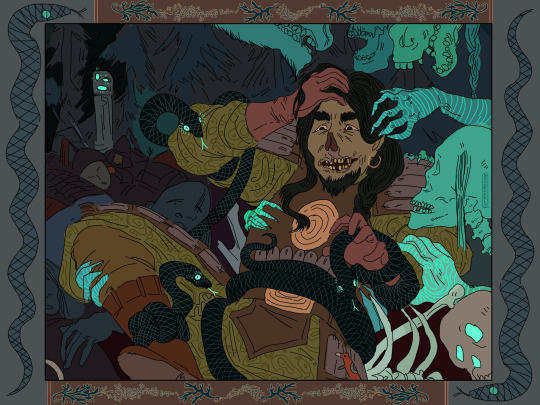
–"Нухур...! Нухур...! "
Все они звали его из глубины леса, жалобно и зло, глаза идолов замерцали белесым пламенем. Мэргэн сделал шаг назад, под сапогом оглушительно хрустнуло, он опустил взгляд и нервно выругался. Землю, которая только что была голой, устилали трупы. Кости белели в прорехах хуягов и дыр дэгэлов, Мэргэн стоял прямо на чьем-то черепе. Из глазницы неторопливо вылезла черная змея и раззявила пасть в оскале. Ратник взмахнул саблей и отсек гадине башку. Она отлетела на пару саженей и продолжила дёргаться и шипеть, как ни в чем не бывало. Мэргэн рванулся прочь, но ветер перестал притворяться ласковым и хлестким ударом сбил его с ног, роняя прямо в груду тел. Влажно чавкнуло и треснуло, лес изменился, Мэргэн узнал это место и отчаянно зарычал.

Рассказ Мэргэн. Глава "Нежданные гости".
***
Читать: Автор Тудей:
https://author.today/work/331882
Фикбук: https://ficbook.net/readfic/018bd190-a9c5-7cf5-b2c4-c29216e59e26
6 notes
·
View notes
Photo
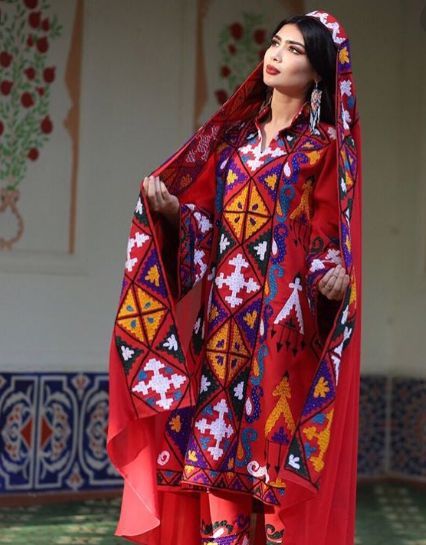

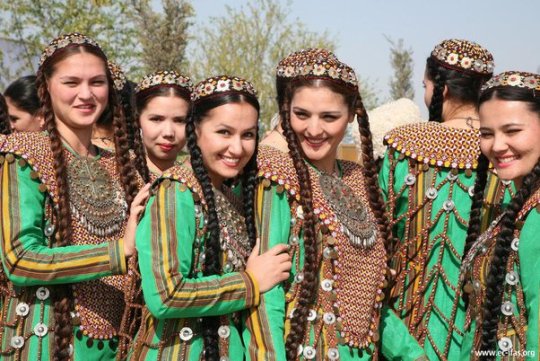
Are Tajiks more related to Iranians/Afghanis or Kazakhs/Mongolians?
Tajiks are an ethnic group primarily found in Central Asia, particularly in modern-day Tajikistan, Afghanistan, and Uzbekistan. They speak the Tajik language, which is a dialect of Persian (Farsi) and are generally considered to be closely related to Iranians in terms of language, culture, and history.
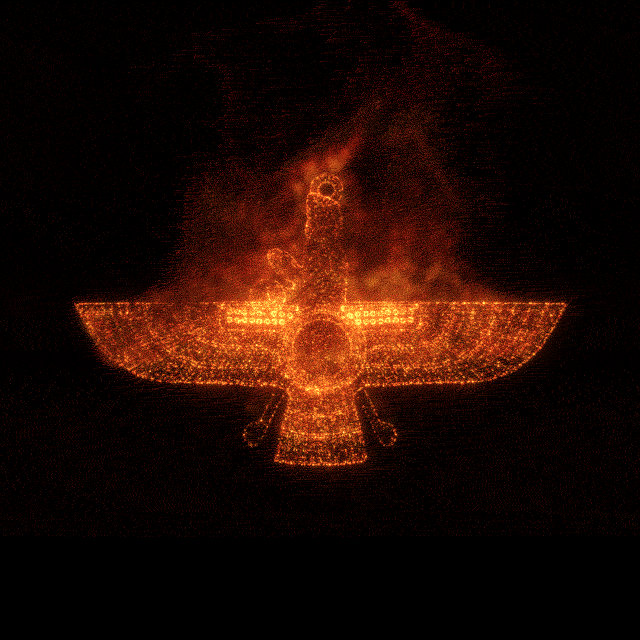
Tajiks and Mongols are two distinct ethnic groups with different origins and histories. While there may have been some interaction and influence between the two groups over the centuries, there is no significant genetic or linguistic relationship between them.
The Tajik language is a member of the Iranian branch of the Indo-European language family, which is the same branch as Persian (Farsi). The grammar, syntax, and vocabulary of Tajik are similar to those of Persian, and the two languages are mutually intelligible to a significant extent.
Culturally, Tajiks have been heavily influenced by Persian culture over the centuries, particularly during the period of the Samanid dynasty (9th-10th centuries CE), which was based in what is now modern-day Uzbekistan and Tajikistan. The Samanid rulers were Persian-speaking and promoted Persian culture, literature, and art in their territories, which had a lasting impact on the region.
In terms of history, the lands inhabited by Tajiks were historically part of the greater Iranian cultural and political sphere, with ties to various Persian empires and dynasties such as the Achaemenids, Parthians, Sassanids, and Safavids. The region was also influenced by Islamic culture and traditions, which further connected it to the wider Iranian world.
Tajiks and Iranians share a close linguistic, cultural, and historical relationship, with the Tajik people being considered a branch of the greater Iranian cultural and linguistic family.
#tajiks#mongols#asia#central asia#persian#perisan culture#ethnic#achaemenids#parthians#sassanids#uzbekistan#samanid#indo european#kemetic dreams#ethnic diversity#ethnic studies
18 notes
·
View notes
Note
hi person I definitely do not know, choose the number 22 now let's see what you got
*cracks knuckles and neck*
everyone, meet my arch fucking nemesis.
one day, while we were in a literature workshop i think, we promised each other we'd write a character analysis of each other. we're both too scared to do it, but i will make a stand and this will be like... a hint of that. a teaser of what could be. an idea.
I don't exactly know where to start so I'll just pick a random point: I said previously that I visit Rei's house the most. That's because I practically live at Dee's house. It became so bad we eventually started going to uni together. It became a meme. and for good reason.
Dee is the most terrifying person you will ever see, but then you'll talk with them for 15 minutes and if you do end up clicking, you'll discover that there's nothing to be afraid of. They're very sweet, but so extremely introverted. Im an archeologist and they're ancient ruins which I KNOW exist and i WILL be digging them up.
but this person. this specimen. this creature. this eldritch entity. honestly man, i dunno what to say, other than this guy (gnc) is one of my best fucking friends and i am so happy about that. this BRAIN. they are genuinely the most fun to discuss shit about. like theyre one of the few people where i will rave about my special interests and they will rave about theirs and we will be having Fun.
speaking of raving about special interests, theyre one of the few neurotypical people with whom i genuinely feel heard and properly taken care of with. like so many of my acquiantances will just not understand the mental illness cocktail inside my brain, and dee doesn't either because they just don't experience it, but theyre one of the few people who will make accomodations for me without me even having asked and that is so noble of them.
also sorry for constantly talking about how hArD my life is. except when i say im dying or wanna kill myself. then im not sorry. i am a dramatic son of a bitch and you befriended me on PURPOSE.
also the ones that get it, get it, but creating an au with you has been one of the most fun experiences ever in my life. not only was it such a fun writing exercise (WRITERS CLUB WHO?) but i loved thinking with you and it was an excuse to spend time with you and no joke i would do it all over again and i WILL do it all over again you are extremely unsafe. and while our love languages clash, once we synced up and did parallel play perfectly, it was such... a safe environment. talking and planning an theorizing with them is fun as fuck. but chilling on their couch (aka my bed) while they play some strategy war game and i play breath of the wild and i listen to them rage at egyptians, mongolians, british, scottish, or whoever attacks their faction and theyre panicking about not having enough resources while i rapidly back away from an approaching lynel is so comforting.
drawing in the same room as them and explaining fashion trends while they explained the latest criminal minds episode to me was so fun. it was so safe. i will genuinely cherish every moment with them, and i massively appreciate them. I wont get into what the situation was, but i once had to run to their house at 12.30 am while carrying groceries in my pajamas, and i wouldd do that again, for any reason.
but also they BULLY me and i am being ABUSED. >:(
no bullying from me in this post tho, i already do a lot of that irl and i will not be stopping.
also i know you will never make your own post like this about me, dee, unless you're not a coward :)
#asks#friends#greetings-humans#'AM I BEING ROMANCED RIGHT NOW?' and 'I would give you my first born' are genuinely the most funny compliments ive ever received from#an aroace person thank you dee for that honor#but uh yeah uuhh who is this person oh noo stranger danger
3 notes
·
View notes
Text


Hello there!
☆ I go by Imaginary on most social media platforms- so I guess that’s what you’re stuck calling me… ☆
↓↓↓

Basics:
• I’m something roughly dude adjacent and use he/they pronouns. I wouldn’t be too opposed to any neo-pronouns you may choose to use.
• I was born in Russia however I have a hefty mix of Russian, Ukrainian and Mongolian blood. Essentially it all boils down to me being white + asian.
• I’ve moved since and am now based in the UK. However, I do tend to travel a-lot so there is no telling where on the globe I might be at any given moment.
• I fluently speak Russian, English and French (though I am terribly out of practice and might be rusty). I know a good bit of Latin and am currently learning Japanese!


DNI:
• I’ve been active online for the better part of my tween and teenage years so I am well aware that not everyone will be everybody’s cup of tea. If the type of content I put out doesn’t particularly resonate with you, please be reasonable and simply scroll by :)
• I am part of the LGBTQ+ community and it goes without saying that anyone residing with homophobic or transphobic views will not be tolerated on this blog.
• The same sentiment is also applied to any kind of anti-asian or anti-black dispositions.


Content:
• I like to keep myself busy so I engage in everything from writing fan-fiction to drawing fan-art and even cosplaying!
• As far as writing goes; I will mainly post drabbles and short one-shots on this blog. Any of my longer works that may be advertised here will be posted on my Ao3 profile (can be found in ‘Links’).
• As far as art goes; Anything from rough sketches to fully rendered pieces will be posted on this blog. Feel free to repost or repurpose my art but please be sure to give credit to this specific blog regardless of the social media you choose to repost or repurpose it on!
• As far as cosplay goes; I will not be posting any of my cosplays on here as Tumblr tends to associate cosplaying with NSFW content and SW (which there is absolutely nothing wrong with, I simply don’t engage with producing such content). However, if you wish to see my work it’s predominantly posted on my TikTok page (can be found in ‘Links’).

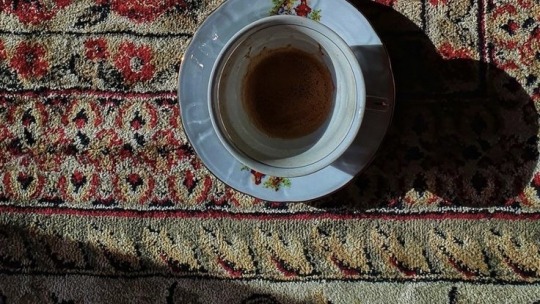
Fandoms:
• Getting some self promotion out of the way: If you’re feeling so inclined, consider joining a new fandom… check out my concept for a WIP Will Wood Jukebox Musical titled Welcome To Suburbia
• Where do I even start… I’ve been a massive part of fandom culture since I was in my early tweens and there is absolutely no way of encompassing every single fandom I have ever been in, but I can surely try:
Film & TV:
Sherlock BBC; Hannibal NBC; The Umbrella Academy; IT; Marvel; DC; Harry Potter; Fight Club; Back To The Future; American Horror Story; Dr Who; Good Omens; The Sandman.
Anime & Animation:
Gravity Falls; Inside Job; South Park; TAWoG; Adventure Time; MLP; Sailor Moon; WINX Club; Monster High; Kakegurui; Moriarty The Patriot; Neon-Genesis Evangelion; Black Butler.
Games:
FNaF; Cup Head; Cult Of The Lamb; Sally Face; DDLC; Animal Crossing; Splatoon; Legend Of Zelda; Mario Brothers; Project Sekai (Colourful Stage); The Last Of Us; Detroit Become Human.
Books & Literature:
Frankenstein; Jekyll & Hyde; Dracula; Steven King’s Collection; Neil Gaiman’s Collection; Лето В Пионерском Галстуке (Summer In A Scout’s Tie).


Links:
• Role Play Blog
• Ao3
• Pinterest
• Spotify
• TikTok
• Instagram


Afterword…
Any and all engagement with this blog is appreciated. I love receiving comments and questions- anything that let’s me meaningfully interact with other users is always welcome.
☆ Stay safe and have a great day!! ☆

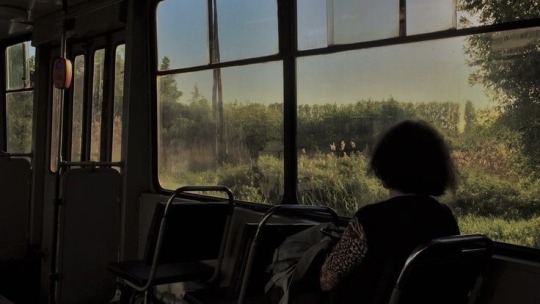
#get to know me#introduction#introductory post#intro post#my dni#my content#my fandoms#my links#lgbtqia#lgbtqia creator#multilingual#multilingual creator#any and all engagement is very much loved and appreciated#Spotify
2 notes
·
View notes
Text
i love the university library because when i get tired of doing grammar work i can just go look at books on soil ecology or mongolian literature or whatever. its great
19 notes
·
View notes